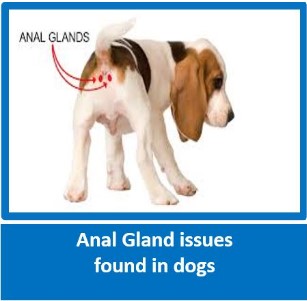7 common side effects of pet meds that should not be ignored!
(Keef Whiteman- BA, English & Psychology, Canine Behaviourist student at FOTD and PA to Scotty Valadao)

When it comes to dog medications, it’s important to be aware of potential side effects.
Many medications are beneficial, yet they can sometimes cause adverse reactions in our furry friends.
Here are common dog medication side effects you should never ignore!
1. Laboured Breathing
2. Incoordination
3. Rapid Heartbeat (Tachycardia)
a) Standard size dogs with a heart rate above 160 bpm are considered tachycardic.
b) Large breeds are tachycardic if their heart rate exceeds 140 bpm.
c) Toy breeds are tachycardic if their heart rate exceeds 180 bpm.
4. Convulsions (a type of seizure where there is an abnormal electrical activity in the dog's brain)
5. Jaundice
6. Lethargy or Behavioral Changes
7. Black, Tarry, or Bloody Stools
Conclusion
Remember to monitor your dog closely when administering medications and seek professional advice if you notice any unusual symptoms.
Your veterinarian can guide you on managing side effects and ensuring your pet’s well-being.
Many medications are beneficial, yet they can sometimes cause adverse reactions in our furry friends.
Here are common dog medication side effects you should never ignore!
1. Laboured Breathing
- Possible reasons include allergic reactions, internal bleeding, heart failure and anaemia
- Laboured breathing can become a life-threatening situation and requires immediate veterinary attention.
- If your dog’s breathing seems stuttered, incomplete, or painful, it’s considered laboured breathing.
- Medications like pain relievers and sedatives are common culprits for causing this side effect.
2. Incoordination
- Possible reasons are excess ammonia in the blood, excess medication intoxication, or kidney disfunction.
- A lack of coordination can be caused by factors like dizziness, or more severe issues related to sensory or neurological functions.
- Dogs experiencing incoordination may sway while standing, tilt their heads, exhibit tremors, or walk oddly.
- Medications such as heavy-duty pain killers and Fluoroquinolone antibiotics can lead to this side effect.
3. Rapid Heartbeat (Tachycardia)
- Any alteration in the normal rhythm of a dog’s heart should be evaluated by a veterinarian promptly.
- Tachycardia can be atrial, ventricular, or sinus, depending on where the abnormality originates.
- The average heart rate varies based on size, age, and health:
a) Standard size dogs with a heart rate above 160 bpm are considered tachycardic.
b) Large breeds are tachycardic if their heart rate exceeds 140 bpm.
c) Toy breeds are tachycardic if their heart rate exceeds 180 bpm.
4. Convulsions (a type of seizure where there is an abnormal electrical activity in the dog's brain)
- Generalized tonic-clonic seizures in dogs are the most common type of canine seizure and are usually associated with epileptic disorders but they can sometimes be caused by certain medications.
- Among the processes that may cause convulsions in dogs due to medication use are:
- Drug intoxication
- Hypoglycemia (low blood sugar)
5. Jaundice
- Yellowing of the skin, eyes, or gums is referred to as jaundice. Jaundice in dogs is always a veterinary emergency.
- Jaundice is caused by drugs that cause damage to the liver, damage the red blood cells, or destroy the red blood cells. These drugs include herbal treatments and the medications that interfere with red blood cell production.
6. Lethargy or Behavioral Changes
- Pet medications often affect a pet’s brain, causing them to behave differently.
- Sometimes this behavior change is what they were prescribed for, such as with anti-anxiety and sedative/pain medication such as opiates, tramadol, and gabapentin.
- However, other times it’s an unintended side effect, like restlessness and hyperactivity.
- These behavior changes can be mild to severe, even causing dysphoria.
- Dysphoria is an altered mental state where your pet might vocalize, pant, or have difficulty settling down.
- Dysphoria is also common after or during anesthesia in pets.
- Other medications known to have these side effects are levothyroxine, steroids, blood pressure medications, insulin, antihistamines, and flea and tick medications.
7. Black, Tarry, or Bloody Stools
- Changes in stool colour or consistency can result from medication side effects.
- Notify your vet immediately if you notice any abnormal stool patterns.
Conclusion
Remember to monitor your dog closely when administering medications and seek professional advice if you notice any unusual symptoms.
Your veterinarian can guide you on managing side effects and ensuring your pet’s well-being.





